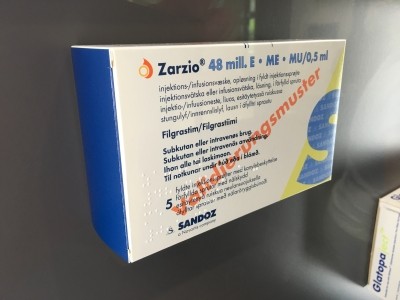CLARIFICATION
Good INNtentions? Naming debate hindering US biosimilar acceptance, expert

Biosimilar products are beginning to make their mark in the US, following the approval and launch of Sandoz’s Zarxio – a copy of Amgen’s Neupogen (filgastrim) last year. But questions surrounding the naming of such products remain unanswered, despite attempts by regulators to introduce guidance.
Last August, the US Food and Drug Admininistration (FDA) opted for a four-letter suffix to distinguish between a biosimilar and its reference in draft guidance, similar to the ‘biological qualifier’ (BQ) proposed by the World Health Organisation (WHO).
(As an example, Zarxio would have the INN ‘filgastrim-sndz’ while Neupogen would be ‘filgastrim-jcwp’ if this is implemented.)
Branded biologic strategy
Such proposals have led to a wealth of dialogue, statements and petitions by industry, patient groups and payers, in what Ian Platts, a Pharmaceutical Markets Analyst from BMI Research, described as “a branded industry strategy” to slow down biosimilar acceptance.
He told Biopharma-Reporter.com that while biosimilars have been marketed without any INN issues in the EU for around a decade, “the naming issue has been bubbling under the surface for the last few years… as a consequence of the approach of a biosimilars market in the US through the regulatory pathway that has now been developed.”
For small molecular drugs and their generics, INNs have not been an issue as generic paracetamol, for example, is the same as branded paracetamol. But the nature of biological products means one company’s infliximab will be meaningfully different to another firm’s infliximab.
Therefore, Platts argued, the INN question is being turned around by originator biologic makers as the being posed as how safe are biosimilars?
“Compounding this is the fact that the FDA has yet to produce a regulatory pathway for interchangeable biosimilars; those that have so far been approved cannot be substituted at the pharmacy in place of their reference products, and the reference product version cannot be substituted in place of the biosimilar.
“The branded companies are well aware of how the emergence of a generic industry has impacted innovative drugs; they will not ultimately be able to stop a biosimilar industry emerging, but they can certainly slow it down.”
Polarised views
Novartis has previously told us it believes some originator companies are deliberately trying to modify INNs to “cast unnecessary doubts around biosimilars,” and – like other biosimilar makers including Hospira (now Pfizer) and Pfenex – has continually petitioned the FDA to maintain the current naming system.
Reference biologic makers AbbVie, Genentech, and J&J, for example, have concurrently called for non-proprietary names on the grounds of safety.
“The argument goes: physicians cannot just prescribe 'infliximab' [for example] but will need to be more specific, as interchanging between different companies' infliximab could cause medical problems,” Platts said.
“However, on the other side of the fence, the argument is that the existing system is fine, that there are other ways to track what product has been dispensed, and that this was never what INN conventions were designed for in the first place.”
The Future
The issue has been circulating for years and Platts said he did not expect a resolution any time soon.
“The view from the generic industry as a whole is that different naming conventions for biosimilars are unnecessary, whilst the branded industry's overall view is that it is necessary. It will take a lot of work to reach a compromise, and will undoubtedly take legislative action to enforce, which is not likely to happen quickly.”
But even if efforts by the WHO or FDA are agreed upon and implemented, “there is then a further issue of whether or not introducing a system that differentiates between different versions of a product is anticompetitive,” Platts said. “I suspect this will become the next hurdle.”
CLARIFICATION: The original article included the quote that biosimilars "cannot be prescribed in place of their reference products, and the reference product version cannot be prescribed in place of the biosimilar." The interchangeability issue surrounds the substitution of a biologic with its biosimilar on a pharmacy level, and after confirming with Platts his original quote has been changed to reflect this.







